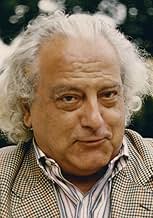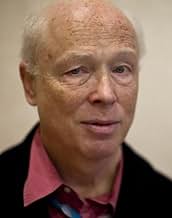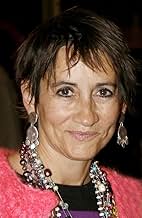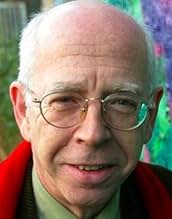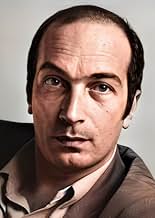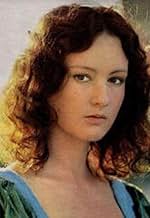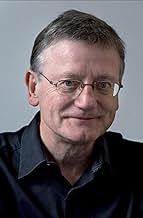AVALIAÇÃO DA IMDb
7,7/10
7,4 mil
SUA AVALIAÇÃO
O chauvinista Alexandre mantém relações com várias mulheres na cena intelectual de Paris depois de 1968.O chauvinista Alexandre mantém relações com várias mulheres na cena intelectual de Paris depois de 1968.O chauvinista Alexandre mantém relações com várias mulheres na cena intelectual de Paris depois de 1968.
- Direção
- Roteirista
- Artistas
- Prêmios
- 3 vitórias e 1 indicação no total
Jean-Claude Biette
- Un homme aux Deux Magots
- (não creditado)
Jean Douchet
- Un homme au Café de Flore
- (não creditado)
Bernard Eisenschitz
- Maurice
- (não creditado)
Jean Eustache
- Le mari de Gilberte
- (não creditado)
- …
Caroline Loeb
- Une jeune fille qui lit le journal en terrasse
- (não creditado)
Noël Simsolo
- Un homme au Café de Flore
- (não creditado)
Avaliações em destaque
This it the type of French movie other artists will use as a reference to make a parody after, or to oversimplify and exaggerate french cinema. A lot of talking, and repeating, a lot of overblown emotions, again a lot of talking between two people. This is what I call a boring movie. A movie I watched at 1.5x speed without any remorse.
A movie like many others before and after that show the missery of being part of a love triangle, no matter how open minded you think you are. Because when it comes to true romantic emotions, there is no place for more than two people. I don't think I am a prude but as this film shows and my past experiences taught me it will not end with a happy ending. But the happy ending I got was that it was over.
A movie like many others before and after that show the missery of being part of a love triangle, no matter how open minded you think you are. Because when it comes to true romantic emotions, there is no place for more than two people. I don't think I am a prude but as this film shows and my past experiences taught me it will not end with a happy ending. But the happy ending I got was that it was over.
One of the last classics of the French New Wave. For direction, cineaste Jean Eustache drew from the simplicity of early-century cinema; for story, Eustache drew on the torments of his own complicated love life. So many things can be said of this film - observationally brilliant; self indulgently overlong; occasionally hilarious; emotionally draining...etc. etc. In my mind, whatever complaints that can be leveled against this film are easily overshadowed by its numerous strengths. Every film student, writer, or simply anyone willing to handle a 3 hour film with no abrupt cuts, no music video overstyling, no soap opera-like plot twists, and no banal dialogue should make it a point to see this movie. Everything is to be admired: the writing (concise, clever, surprisingly funny), acting (everyone, quite simply, is perfect in their respective roles), and, simple direction (the viewer feels like a casual observer within the film) make this film unforgettable. This is undoubtedly a film that stays with you.
10hasosch
Unfortunately, Jean Eustache (1938-1981) belongs like so many once leading French film makers nowadays to the great unknown ones whose movies are hard to find and are not released on international DVDs. Since we have a good old-fashioned video-store in Tucson, I had the chance to watch this 3 1/2-hour marathon masterwork that is not boring for ten seconds.
Since we speak here about one of the most discussed (and most controversially discussed) movies of all times, let me tell you my impression that the endless dialogs, originally typical for the early "Nouvelle Vague" of a Jacques Rivette or Alain Resnais appear almost ridiculous in this movie. The dialogs are basically monologues, mainly the longest ones spoken by Jean-Pierre Léaud. The most characteristic feature is that the intersections of the speeches of two people is almost zero. Léaud, or his character, Alexandre, pleases to tell more about himself than about the topics he is seemingly to speak. Therefore, one can hardly speak about communication in this movie. It is well possible that the director had a gargantuan satire in mind against the idle running of the once so hotly discussed political and sociological ideas, but the type of man Alexandre exists to all times, we find him already in Petron's "Satiricon", which work has actually great resemblance with "The Mother and the Whore".
Alexandre does not only nothing, but he has developed an own kind of metaphysics about the absence of acting, at least acting in the sense of responsibility toward the society whose part he is. He mocks at the people who run to work at 7 c'clock in the morning, when he is just busy having his last drink before he goes to bed in the apartment of one of his girlfriends from whose money he lives. He is unable to speak one sentence without quoting one of the leading thinkers between Nietzsche and Bernanos. Especially Sartre who is shown quickly in the French intellectual café "Aux Deux Magots", where Alexandre, too, is sitting all day, must serve as excuse for the life-style of Alexandre and his colleagues, because they suffer existential crisis from bourgeois nausea. However, the intellectual speeches of Alexandre seem to be rather pseudo-intellectual, and the sentences and quips he cites seem to come rather from a dictionary of quotations than from his actual reading of the respective books.
It is true: This movie demands an extremely broad European knowledge, especially the connoisseurship of French existentialist philosophy and there consequences to the 68 student revolution movement, but if you have this knowledge, than you will enjoy 215 minutes of your life by staring amazed into the TV and crying out with laughing like you have probably not done it since a long time.
Since we speak here about one of the most discussed (and most controversially discussed) movies of all times, let me tell you my impression that the endless dialogs, originally typical for the early "Nouvelle Vague" of a Jacques Rivette or Alain Resnais appear almost ridiculous in this movie. The dialogs are basically monologues, mainly the longest ones spoken by Jean-Pierre Léaud. The most characteristic feature is that the intersections of the speeches of two people is almost zero. Léaud, or his character, Alexandre, pleases to tell more about himself than about the topics he is seemingly to speak. Therefore, one can hardly speak about communication in this movie. It is well possible that the director had a gargantuan satire in mind against the idle running of the once so hotly discussed political and sociological ideas, but the type of man Alexandre exists to all times, we find him already in Petron's "Satiricon", which work has actually great resemblance with "The Mother and the Whore".
Alexandre does not only nothing, but he has developed an own kind of metaphysics about the absence of acting, at least acting in the sense of responsibility toward the society whose part he is. He mocks at the people who run to work at 7 c'clock in the morning, when he is just busy having his last drink before he goes to bed in the apartment of one of his girlfriends from whose money he lives. He is unable to speak one sentence without quoting one of the leading thinkers between Nietzsche and Bernanos. Especially Sartre who is shown quickly in the French intellectual café "Aux Deux Magots", where Alexandre, too, is sitting all day, must serve as excuse for the life-style of Alexandre and his colleagues, because they suffer existential crisis from bourgeois nausea. However, the intellectual speeches of Alexandre seem to be rather pseudo-intellectual, and the sentences and quips he cites seem to come rather from a dictionary of quotations than from his actual reading of the respective books.
It is true: This movie demands an extremely broad European knowledge, especially the connoisseurship of French existentialist philosophy and there consequences to the 68 student revolution movement, but if you have this knowledge, than you will enjoy 215 minutes of your life by staring amazed into the TV and crying out with laughing like you have probably not done it since a long time.
... is because of films like this.
Don't get me wrong. I like independent cinema, and particularly like good foreign films, but this film could have been cut by at least an hour.
I'll explain.
The film revolves around a self centered young man who professes he loves certain women, but is really looking for someone to love him. Enter a woman who doesn't love herself, but finds this same young man, taps his energy, and both wind up "flowering" for it.
This movie revolves around the sexual morays and politics of a small group of Parisians. The film starts out very strong. Actors present characters in an extended first act that we would like to get to know, but, unfortunately this pic becomes the poster boy for the proverbial "long boring French film" replete with characters who light up cigarettes and talk in either cafés or materially spartan rented rooms about how life should be different, and what it all means. Toss in an Oedipal complex/undercurrent, and you have the quintessential French avante-garde flick.
Huh.
Inspite of this there's some good material in this film, but director Jean Eustache (probably to make up for lack of scheduling and some technical aspects) throws a lot of dialog at the audience that would've have been better served with some visual cues.
All in all it shows how messed up an certain sect of French culture really is, and, perhaps ironically, drives home a realist message regarding the act of coupling.
Technically it's bare bones. Lots of natural lighting is fused with high contrast B&W cinematography, and to add to the rugged feel of the film the scratch track is used. Little to no looping of dialog. You can hear what pros call "room tone" as it was actually recorded during filming.
I could go off the deep end and call this film self-indulgent, pretentious et al, but will say instead that the exposition given to the story was "over-exposed" (for lack of a better term). The symbolism is fine, but a lack of visuals and a borderline in-you-face delivery of certain dialog, hampers what could have been a much better film. By that I don't mean commercially successful nor accessible, but a film that could have delivered the same gists, character and message without the flaunting its strive for artistic excellence.
Don't get me wrong. I like independent cinema, and particularly like good foreign films, but this film could have been cut by at least an hour.
I'll explain.
The film revolves around a self centered young man who professes he loves certain women, but is really looking for someone to love him. Enter a woman who doesn't love herself, but finds this same young man, taps his energy, and both wind up "flowering" for it.
This movie revolves around the sexual morays and politics of a small group of Parisians. The film starts out very strong. Actors present characters in an extended first act that we would like to get to know, but, unfortunately this pic becomes the poster boy for the proverbial "long boring French film" replete with characters who light up cigarettes and talk in either cafés or materially spartan rented rooms about how life should be different, and what it all means. Toss in an Oedipal complex/undercurrent, and you have the quintessential French avante-garde flick.
Huh.
Inspite of this there's some good material in this film, but director Jean Eustache (probably to make up for lack of scheduling and some technical aspects) throws a lot of dialog at the audience that would've have been better served with some visual cues.
All in all it shows how messed up an certain sect of French culture really is, and, perhaps ironically, drives home a realist message regarding the act of coupling.
Technically it's bare bones. Lots of natural lighting is fused with high contrast B&W cinematography, and to add to the rugged feel of the film the scratch track is used. Little to no looping of dialog. You can hear what pros call "room tone" as it was actually recorded during filming.
I could go off the deep end and call this film self-indulgent, pretentious et al, but will say instead that the exposition given to the story was "over-exposed" (for lack of a better term). The symbolism is fine, but a lack of visuals and a borderline in-you-face delivery of certain dialog, hampers what could have been a much better film. By that I don't mean commercially successful nor accessible, but a film that could have delivered the same gists, character and message without the flaunting its strive for artistic excellence.
10yarns
It is not an easy film to watch - it is over three and a half hours long and it is composed entirely of conversations. Yet it is so incredibly compelling and ruthlessly observational of the human character, that it is, in my humble opinion, one of the very greatest films of all time.
The film is depressing, cynical and cruel. (If you want something uplifting, see Jacques Rivette's fantastic Céline and Julie Go Boating, which was made around the same time). It shows the idealism of the late 1960s to be nothing different from the society that it was trying to change.
It involves a supposedly liberated ménage-à-trois between Alexandre (played by Jean-Pierre Leaud), Marie (Bernadette Lafont) and Veronika (Francoise Lebrun). Yet Alexandre is shown to be as chauvinistic and jealous as any other man. The women are exposed as being willingly subservient and defining their femininity through the male gaze.
The film is an extremely icy end to the highly revolutionary French New Wave. This movement was one of the most significant movements in film history and had a profound effect on cinema as we know it. Jean-Pierre Leaud was one of the key actors of the New Wave, having starred (among other films) in the influential Les Quatres Cent Coups (1959) by Francois Truffaut as a rebellious teenager. Director Jean Eustache is not as well known as other directors from the New Wave, but he should be.
There is no improvisation (unlike in John Cassavetes's similar films made in the US) and the dialogue comes from real-life conversations. The film is resonant with Eustache's personal experiences. For example, Francoise Lebrun was a former lover of Eustache. Eustache himself committed suicide in 1981 and the real-life person that the character Marie was based on, did too. The anger and bitterness all culminate in a harrowing monologue by Veronika delivered directly to the audience, breaking down the coldly objective nature of the rest of the film. This mesmerising, personal, and honest filmic statement remains one of the most revealing films of human nature around.
The film is depressing, cynical and cruel. (If you want something uplifting, see Jacques Rivette's fantastic Céline and Julie Go Boating, which was made around the same time). It shows the idealism of the late 1960s to be nothing different from the society that it was trying to change.
It involves a supposedly liberated ménage-à-trois between Alexandre (played by Jean-Pierre Leaud), Marie (Bernadette Lafont) and Veronika (Francoise Lebrun). Yet Alexandre is shown to be as chauvinistic and jealous as any other man. The women are exposed as being willingly subservient and defining their femininity through the male gaze.
The film is an extremely icy end to the highly revolutionary French New Wave. This movement was one of the most significant movements in film history and had a profound effect on cinema as we know it. Jean-Pierre Leaud was one of the key actors of the New Wave, having starred (among other films) in the influential Les Quatres Cent Coups (1959) by Francois Truffaut as a rebellious teenager. Director Jean Eustache is not as well known as other directors from the New Wave, but he should be.
There is no improvisation (unlike in John Cassavetes's similar films made in the US) and the dialogue comes from real-life conversations. The film is resonant with Eustache's personal experiences. For example, Francoise Lebrun was a former lover of Eustache. Eustache himself committed suicide in 1981 and the real-life person that the character Marie was based on, did too. The anger and bitterness all culminate in a harrowing monologue by Veronika delivered directly to the audience, breaking down the coldly objective nature of the rest of the film. This mesmerising, personal, and honest filmic statement remains one of the most revealing films of human nature around.
Você sabia?
- CuriosidadesThis film is based on the real-life relationship between director Jean Eustache and actress Francoise Lebrun (who plays Veronika). The character based on her is named Gilberte in the movie and is played by Isabelle Weingarten.
- Erros de gravaçãoAlexandre can be seen drinking a bottle of 1970 Gevrey-Chambertin, which would have been far too expensive for him to have purchased. This error is illuminated by his notable lack of money during the cafe scene, in which his date pays for his bill.
- ConexõesFeatured in Étoiles et toiles: L'érotisme au cinéma (1983)
- Trilhas sonorasIch weiß, es wird einmal ein Wunder gescheh'n
Written by Bruno Balz, Michael Jary and Ralph Benatzky
Performed by Zarah Leander
Principais escolhas
Faça login para avaliar e ver a lista de recomendações personalizadas
- How long is The Mother and the Whore?Fornecido pela Alexa
Detalhes
- Data de lançamento
- País de origem
- Centrais de atendimento oficiais
- Idioma
- Também conhecido como
- A Mãe e a Prostituta
- Locações de filme
- Café Les Deux Magots - 6 place Saint-Germain-des-Prés, Paris 6, Paris, França(Alexandre's usual café)
- Empresas de produção
- Consulte mais créditos da empresa na IMDbPro
Bilheteria
- Faturamento bruto nos EUA e Canadá
- US$ 40.555
- Fim de semana de estreia nos EUA e Canadá
- US$ 5.135
- 25 de jun. de 2023
- Faturamento bruto mundial
- US$ 47.344
- Tempo de duração
- 3 h 37 min(217 min)
- Cor
- Mixagem de som
- Proporção
- 1.37 : 1
Contribua para esta página
Sugerir uma alteração ou adicionar conteúdo ausente

